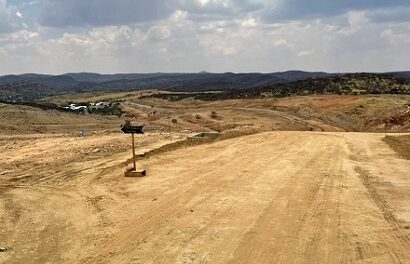The Government Institutions Pension Fund (GIPF) announced last week its third incubation asset manager: Catalyst Investment Managers.
GIPF’s incubation programme, which commenced in 2019, aims to address the need for active beneficial participation of Namibian professionals in the asset management industry, expand on their capacity within Namibia and bring in expertise with the necessary skills to mainstream asset management.
“The programme is meant to emulate other large asset owners in the region that have embarked on similar initiatives to empower their own investment professionals to enter the industry and to become active market participants,” said Mr Leevi Tshoopara, GIPF’s Listed Investments Manager.
“When successful, this programme will open opportunities in future for more entrants into the industry, therefore completing the investment eco-system loop between asset owners, asset management companies and the stock market. The GIPF is strategically changing the industry and our work through the incubation programme, which is leading the charge in the evolution of the Namibian industry.”
In a statement, GIPF stated that Catalyst Investment Managers, one of six managers who are a part of the GIPF incubation programme, is a privately owned, independent investment management firm that was established in 2017.
The firm is founded on the premise of placing clients’ interests first and providing Namibians with the opportunity to manage their own money. Catalyst Investment Managers aims to strengthen the participation of Namibian professionals in the investment management industry by growing skills and capacity.
According to GIPF it has allocated N$4.2 billion towards this incubation programme aimed at creating measurable participation by the appointed asset managers with the overall objective of growing the local asset management industry. These managers were appointed following a rigorous tender process that was conducted by GIPF’s Investment Consultant in collaboration with the GIPF Management and the Board.
In order to seek for clarity, Omutumwa sent questions to GIPF, to which the Fund’s CEO responded as follows:
Question (Omutumwa): GIPF has announced in a press release that it has brought on board a third incubation asset manager. Can you provide the names of the other two?
Answer (GIPF): The Incubation Asset Management Programme has 6 (six) appointed managers under it. Currently the media releases have focused on 3 (three) of the 6 (six) asset managers, namely Arysteq Asset Management, MUMI Investment Managers and Catalyst Investment Managers.
Question (Omutumwa): Briefly what does “incubation asset manager” mean? Does it mean that these asset managers will be incubated, nurtured and capitalized with GIPF money until they may stand on their own as credible enterprises?
Answer (GIPF): Incubation Asset Managers fall within a deliberate programme that was approved by our Board of Trustees to promote and support the establishment of asset management firms that are run by previously disadvantaged Namibian investment professionals who possess the requisite qualifications and experience to manage listed investments.
This is a deliberate policy to create local capacity as currently foreign firms dominate the industry especially in the listed space. All key men/women in these entities have managed investments before and are experienced in the field of active asset management. The incubation element of this programme has two elements, namely financial and non-financial assistance.
To date, focus has mostly been on the financial side, for example funds have been allocated to be invested in the South African Listed Equity asset class (on the JSE) in terms of an investment mandate and agreement on risk parameters. All these funds are held in the name of the GIPF, and all script is in the custody of a reputable Custodian. These managers are afforded an opportunity to manage listed South African equity assets on behalf of GIPF.
Question (Omutumwa): The allocation of N$4.2 billion, is it not too high an amount to invest in asset management enterprises which are not expected to make much socio-economic impact to the Namibian society?
Answer (GIPF): The mandate for the incubation programme is South African Listed Equity assets, that is permitted under the Pension Fund Act regulations. These assets are managed relative to a very strict allowed deviation from the benchmark.
As a global investor, GIPF has a diverse allocation of funds and this helps reduce risk associated with investing. Our Unlisted Investments are made through investment vehicles that are regulated under Regulation 13 and are within parameters as defined in our Strategic Asset Allocation. We therefore invest in real assets that have socioeconomic impact through that asset class.
Question (Omutumwa): GIPF has been accused in the past of putting its money into investments which are far-removed from the interests of its members (annuitants); can you explain that this Catalyst investment is worthwhile?
Answer (GIPF): The assets invested by Catalyst Investment Managers, and the incubation managers generally, are in compliance with our Strategic Asset Allocation and contribute directly to our total return objectives. The returns generated from our investment activities help us execute on our mandate of providing benefits to our members, which are defined in their employment contracts.
In the photo: Mr. Leevi Tshoopara, Manager Listed Investments at GIPF








